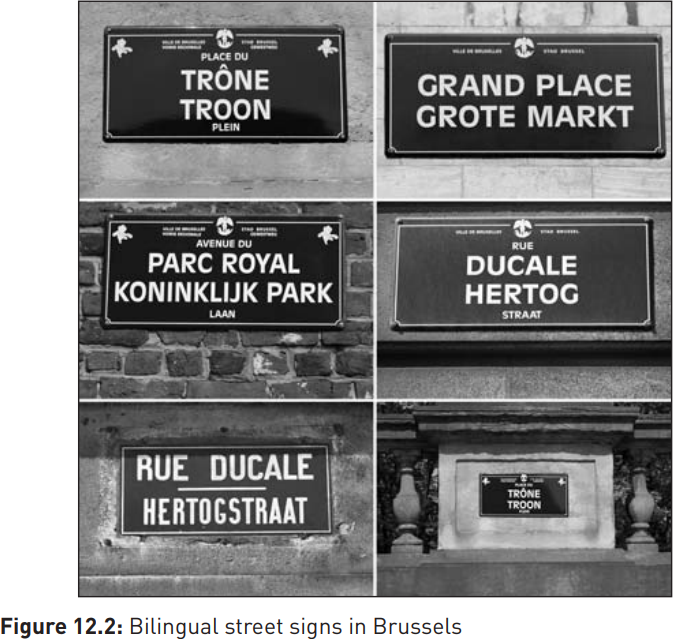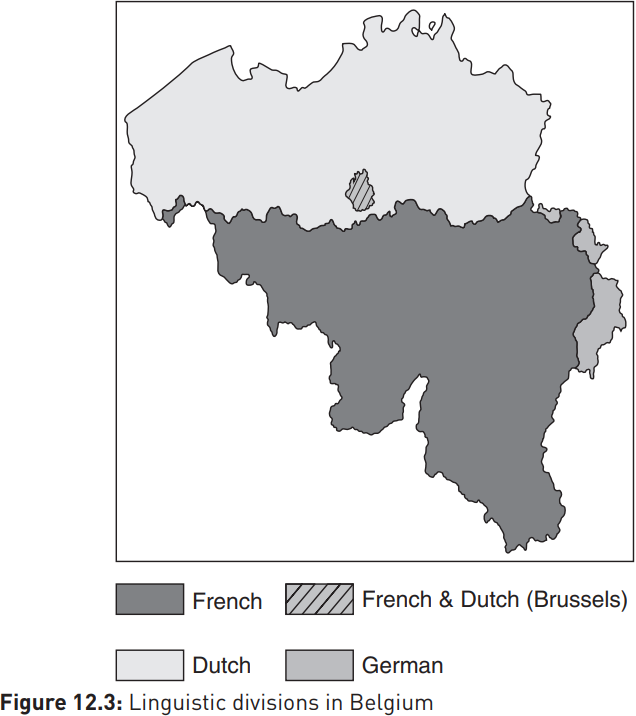
Personality and territory principles: belgium
 المؤلف:
David Hornsby
المؤلف:
David Hornsby
 المصدر:
Linguistics A complete introduction
المصدر:
Linguistics A complete introduction
 الجزء والصفحة:
262-12
الجزء والصفحة:
262-12
 2024-01-03
2024-01-03
 1002
1002
Personality and territory principles: belgium
Multilingual nation states have generally framed language policies according to one of two principles. The Personality Principle allows citizens to choose their language in all circumstances, while the Territory Principle requires public use of a single language in a given area, and offers services only in that language.

Unusually, Belgium applies both principles. In officially bilingual Brussels, street names and all public institutions are given in both official languages, French and Dutch, and all public services must by law be provided in both languages. Outside the capital, however, the Territory Principle applies, according to which French-speaking Belgians are required to use Dutch in the neerlandophone zone and vice-versa, with no official accommodation to the other language in either case.
Belgium’s chequered linguistic history shows that neither principle, even when sensitively applied, is without difficulties. Dutch speakers resent the fact that French now dominates in the capital, a city squarely in the Dutch-speaking zone. They also complain of the tache d’huile (oil slick) effect, in which Brussels-based francophones take residence in officially Dutch-speaking suburbs, and turn them into de facto francophone areas. French speakers, on the other hand, resent being required to use Dutch in areas where they have become the majority language group.

Matters came notably to a head in the 1980s following the election of José Happart as bourgmestre (mayor) of the small town of Fourons/Voerons (pop. 4,000). Although designated as Dutch-speaking in the 1920s, Fourons had become a majority francophone community, and Happart, elected largely by francophone speakers, was unable, or unwilling, to take a Dutch language test as the law required. This provoked a constitutional crisis, and a lengthy political stand-off which was resolved by some rather messy compromises, in which Happart was allowed to serve as ‘first alderman fulfilling the functions of mayor’ (see Ball 1997: 35).
 الاكثر قراءة في Linguistics fields
الاكثر قراءة في Linguistics fields
 اخر الاخبار
اخر الاخبار
اخبار العتبة العباسية المقدسة


